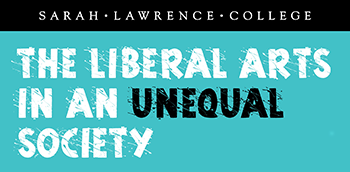Event Title
Liberal Education as a Vocation: 19th Century Practices for 21st Century Institutions
Location
Donnelley Theatre, Heimbold Visual Arts Center
Start Date
15-11-2014 9:00 AM
End Date
15-11-2014 9:15 AM
Abstract
“Is individuality with us also going to count for nothing,” the Harvard philosopher and psychologist William James lamented in 1903, “unless stamped and licensed and authenticated by some title-giving machine?” Like so many critics of higher education past and present, James saw the business model of the modern college to be corrosive to what he saw as its counter-cultural mission —the moral and spiritual emancipation of individuals. In nineteenth-century America, however, education for freedom typically happened in places besides a college campus — embodied in habits of reading, writing, and speaking, enacted across formal and informal social contexts dedicated to self-improvement and mutual aid. This presentation seeks to locate the twentieth-century college within a nineteenth-century landscape of character education, amidst institutions such as the lyceum, the public library, and the settlement house. What might spaces and practices of liberal education prior to the expansion of higher education teach us about the cultural politics of distinction in our own time? And what lessons might the material and social history of the liberal arts in nineteenth-century America offer “the degree-granting machine” as it adapts to new forms of technological disruption, commercial innovation, and social inequality?
Presenter Biography
Thomas Augst is an Associate Professor of English and Acting Director of Digital Humanities at New York University, where he teaches courses in American literature and culture. His writing focuses on literary history of the nineteenth-century, interpreting diverse forms of literacy and media in relation to questions about ethics and self-cultivation, the organization of knowledge, and the cultural politics of modern liberalism. He is the author of The Clerk’s Tale: Young Men and Moral Life in 19th Century America (2003), co-editor of Institutions of Reading: The Social Life of Libraries in the United States (2007), and co-editor of Cultural Agencies and American Libraries (2001). He earned his doctorate from Harvard University, and has received research fellowships from the Woodrow Wilson Foundation and National Endowment for the Humanities. He is currently developing two collaborative projects at the intersection of research and teaching: NewYorkScapes, dedicated to thick mapping the archival record, and at the American Antiquarian Society, The Digital Antiquarian, cultivating historical information literacy and archive-based research training in digital humanities.
Liberal Education as a Vocation: 19th Century Practices for 21st Century Institutions
Donnelley Theatre, Heimbold Visual Arts Center
“Is individuality with us also going to count for nothing,” the Harvard philosopher and psychologist William James lamented in 1903, “unless stamped and licensed and authenticated by some title-giving machine?” Like so many critics of higher education past and present, James saw the business model of the modern college to be corrosive to what he saw as its counter-cultural mission —the moral and spiritual emancipation of individuals. In nineteenth-century America, however, education for freedom typically happened in places besides a college campus — embodied in habits of reading, writing, and speaking, enacted across formal and informal social contexts dedicated to self-improvement and mutual aid. This presentation seeks to locate the twentieth-century college within a nineteenth-century landscape of character education, amidst institutions such as the lyceum, the public library, and the settlement house. What might spaces and practices of liberal education prior to the expansion of higher education teach us about the cultural politics of distinction in our own time? And what lessons might the material and social history of the liberal arts in nineteenth-century America offer “the degree-granting machine” as it adapts to new forms of technological disruption, commercial innovation, and social inequality?


